Armenia to pick new PM next week; Moscow keeps wary eye
upheaval has threatened to destabilise Armenia, an ally of Russia
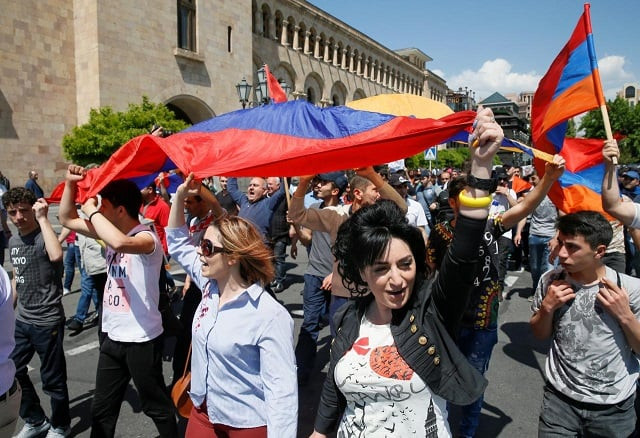
Armenian opposition supporters take part in a procession while protesting against the ruling elite during a rally in Yerevan, Armenia April 26, 2018. REUTERS/Gleb Garanich
favourite.
Although the demonstrations have been peaceful, the upheaval
has threatened to destabilise Armenia, an ally of Russia, in a
volatile region riven by Armenia's decades-long, low-level
conflict with neighbouring Azerbaijan.
Moscow has two military bases in the ex-Soviet republic, and
Russian President Vladimir Putin spoke to Karen Karapetyan, the
acting prime minister, on Thursday and made it clear Moscow was
watching and did not want mob rule.
Pakistan, Russia 'keen to expand military ties'
"It was emphasised that resolving the political crisis in
Armenia must take place exclusively through legal means in the
framework of the current constitution," the Kremlin said.
Its statement also appeared to suggest that Putin wanted the
next prime minister to come from the ruling party, which has
been the focus of popular anger, saying he thought the crisis
needed to be addressed on the basis of what he said were
legitimate parliamentary elections in 2017.
That appeared to conflict with the demands of protesters who
have said they want Pashinyan to be the new interim prime
minister and for him to organise fresh parliamentary elections. Protest leader Pashinyan said that results of 2017 election
could not be regarded as legitimate.
"It's a misunderstanding," Pashinyan told reporters
commenting on Putin's statament. "I think it's a wrong
interpretation as Russia as well as other countries does not
intervene in Armenia's internal affairs." The situation in Armenia is awkward for the Russian leadership.
It has kept a tight lid on protests in its own country, but is now watching as demonstrations in a close ally are forcing the ruling Armenian elite to make concessions, setting a regional precedent it is unlikely to welcome.
The demonstrations, driven by public anger over perceived
political cronyism and corruption, looked to have peaked on
Monday when Serzh Sarksyan, a close Putin ally, quit as prime
minister, a post he had held for just six days after serving for
a decade as president.
Demonstrators have made clear they view the whole system as
tainted after Sarksyan's sought to shift power to the office of
premier from that of president. They want a sweeping political
reconfiguration before ending their protests, which continued on
Thursday.
In a further sign of growing Russian interest in the crisis,
Foreign Minister Sergei Lavrov held talks in Moscow on Thursday
with his Armenian counterpart Edward Nalbandian, while Armenia's
acting vice premier, Armen Gevorkyan, met Russian presidential
administration officials.
Pashinyan said on Wednesday he had received assurances from
Russian officials that Moscow would not intervene in the crisis. Earlier this week, Pashinyan ruled out challenging the
presence of Russian military bases in Armenia or its membership
in Russia-led military and economic alliances.
'A PEOPLE'S PRIME MINISTER' Armenia's ruling elite has been scrambling to try to appease the protesters for days. The parliamentary speaker said on Thursday parliament would elect a new interim prime minister on May 1. Pashinyan, a former journalist turned lawmaker who has been instrumental in organising the protests, has demanded the job.
"We expect that all forces in the parliament will recognise
the people's victory .... Either I will be elected as prime
minister or there will be no prime minister elected in Armenia,"
Pashinyan told protesters gathered in Republic square in central
Yerevan.
Janjua leads ministerial delegation to Russia
He offered to meet acting Prime Minister Karen Karapetyan on Friday. Pashinyan, if elected, wants to reform the electoral system
to ensure it is fair before holding new parliamentary elections.
"We will have a people's prime minister and after the
election a people's government and parliament," said Anna
Agababyan, a 38-year-old teacher who was protesting in Yerevan,
the capital, on Thursday, holding a small national flag.
Armen Sarkissian, the president, on Thursday hailed what he
called "a new page" in Armenia's history and called on lawmakers
to help forge a new country while respecting the constitution.
Pashinyan and his allies have been busy trying to build
support for him with the ruling Republican Party and other
parties in parliament where Pashinyan, before the protests, was
part of a small opposition bloc with no chance of power.



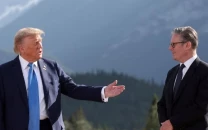
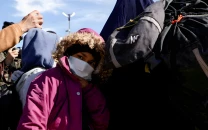
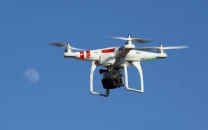
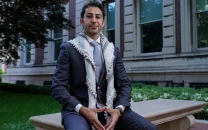












COMMENTS
Comments are moderated and generally will be posted if they are on-topic and not abusive.
For more information, please see our Comments FAQ